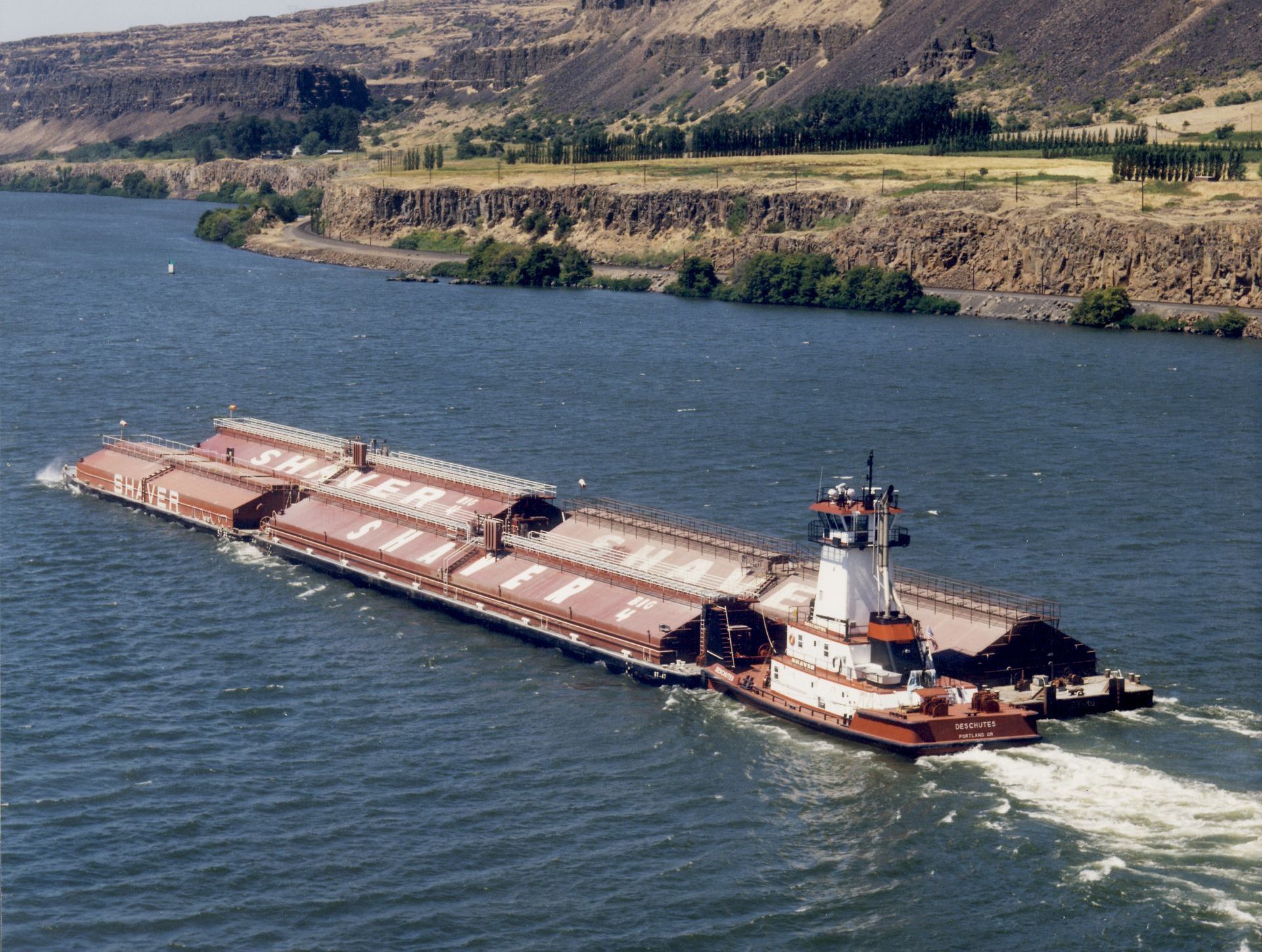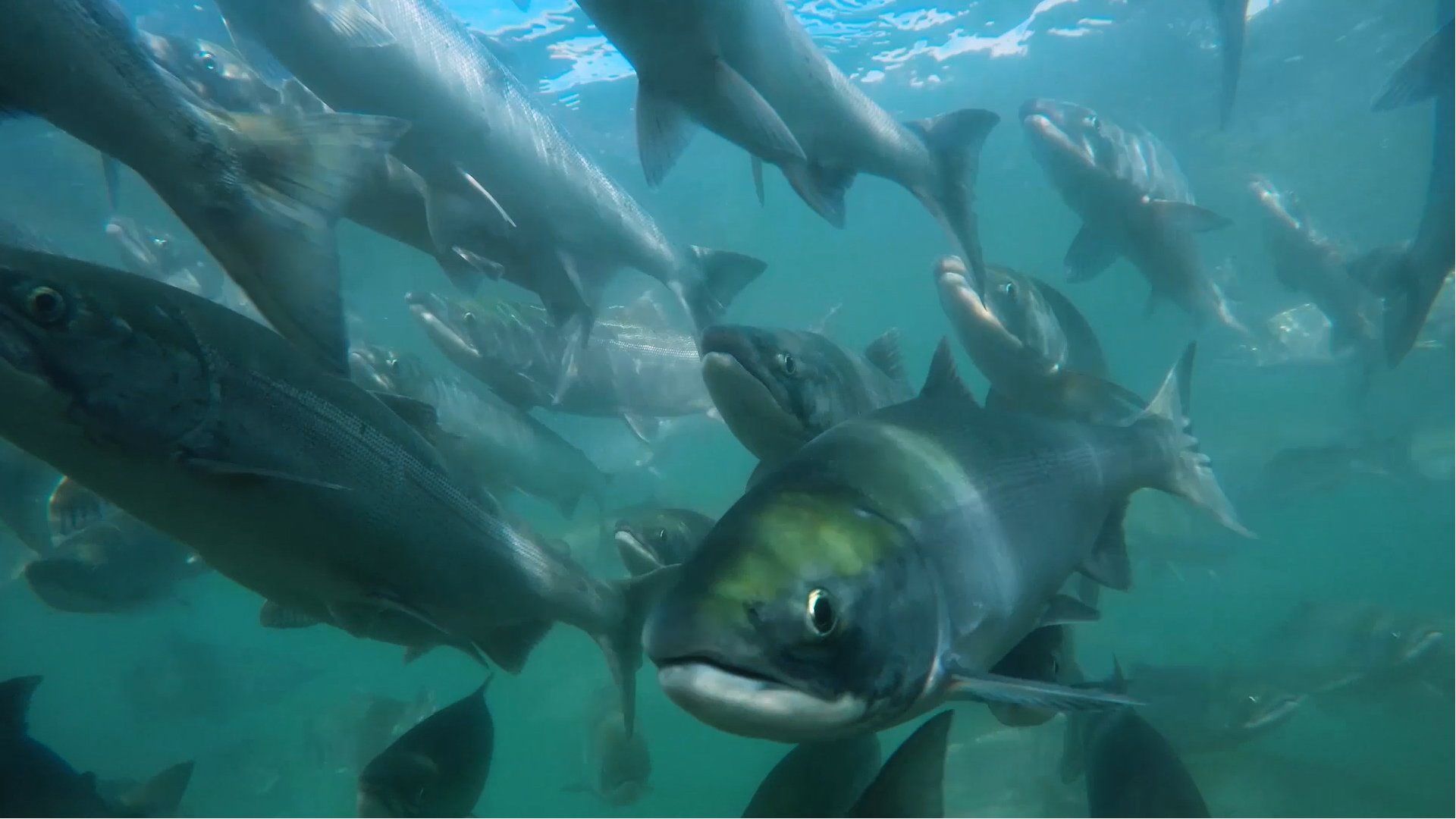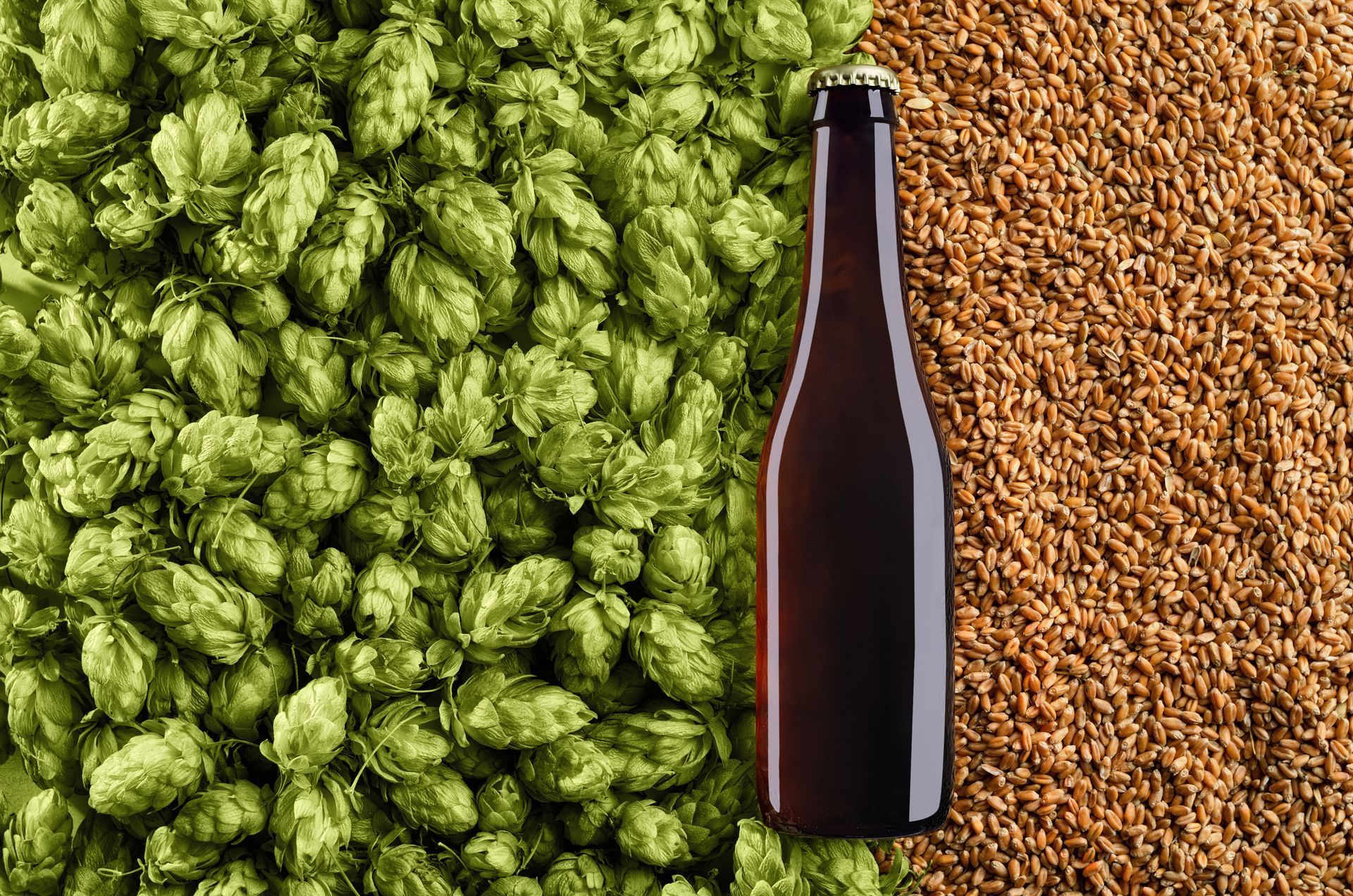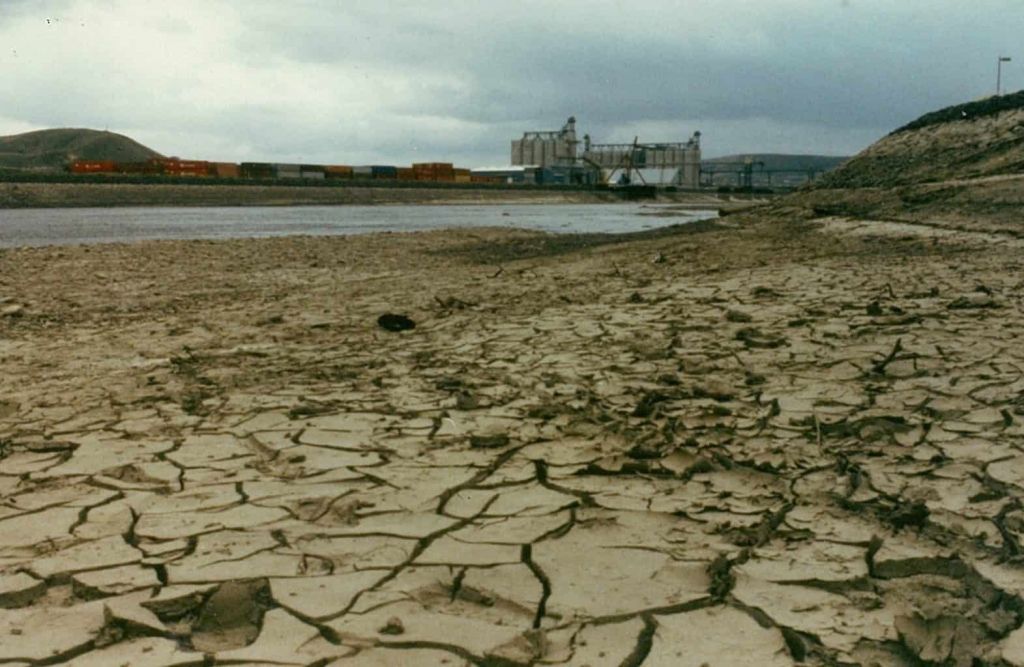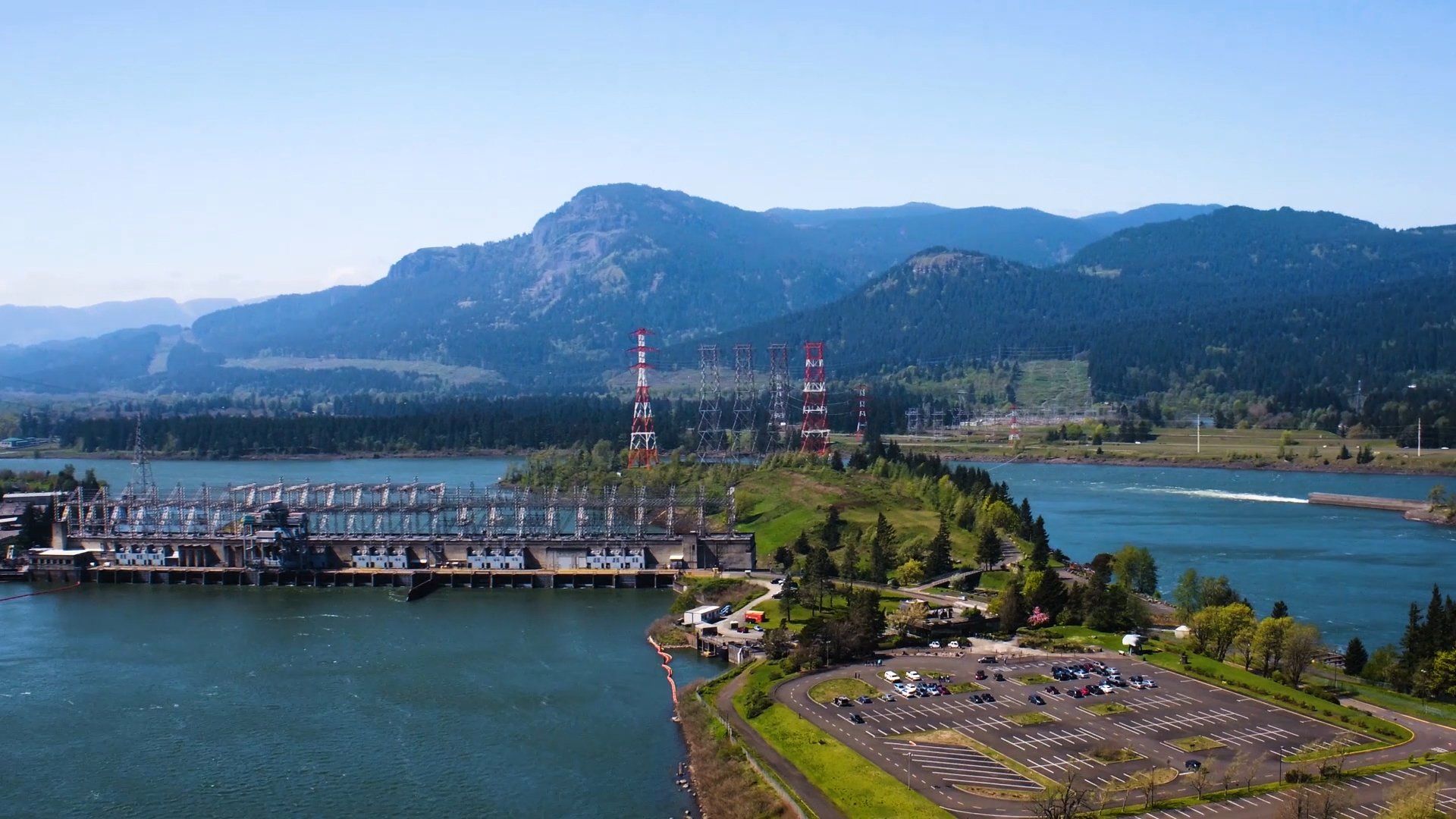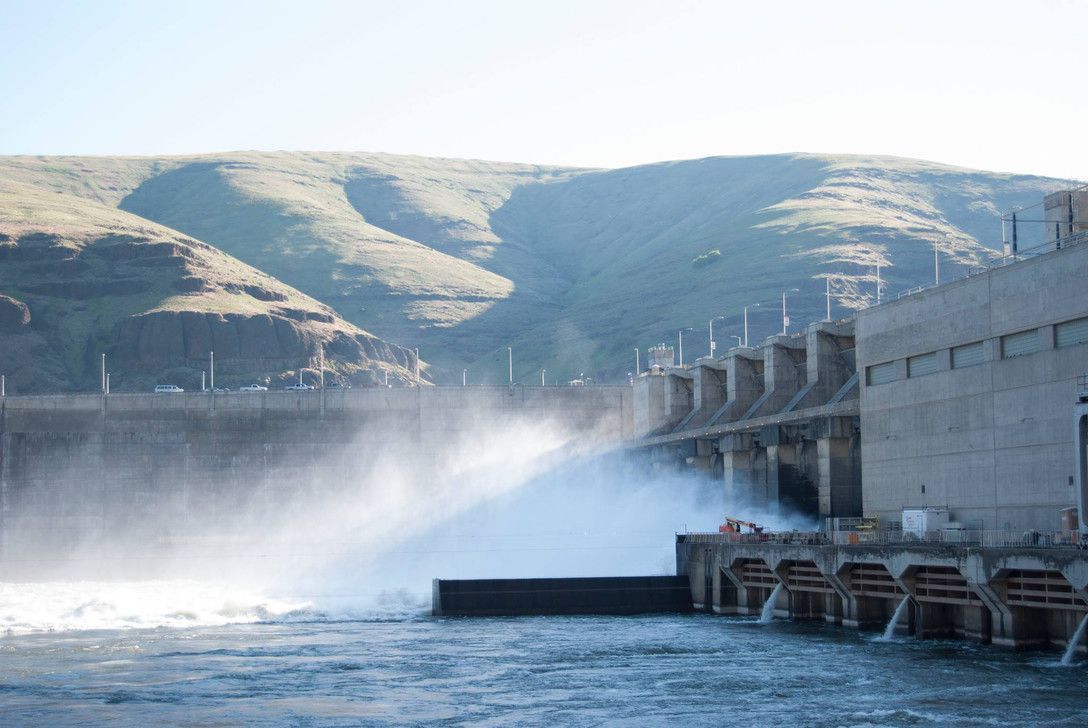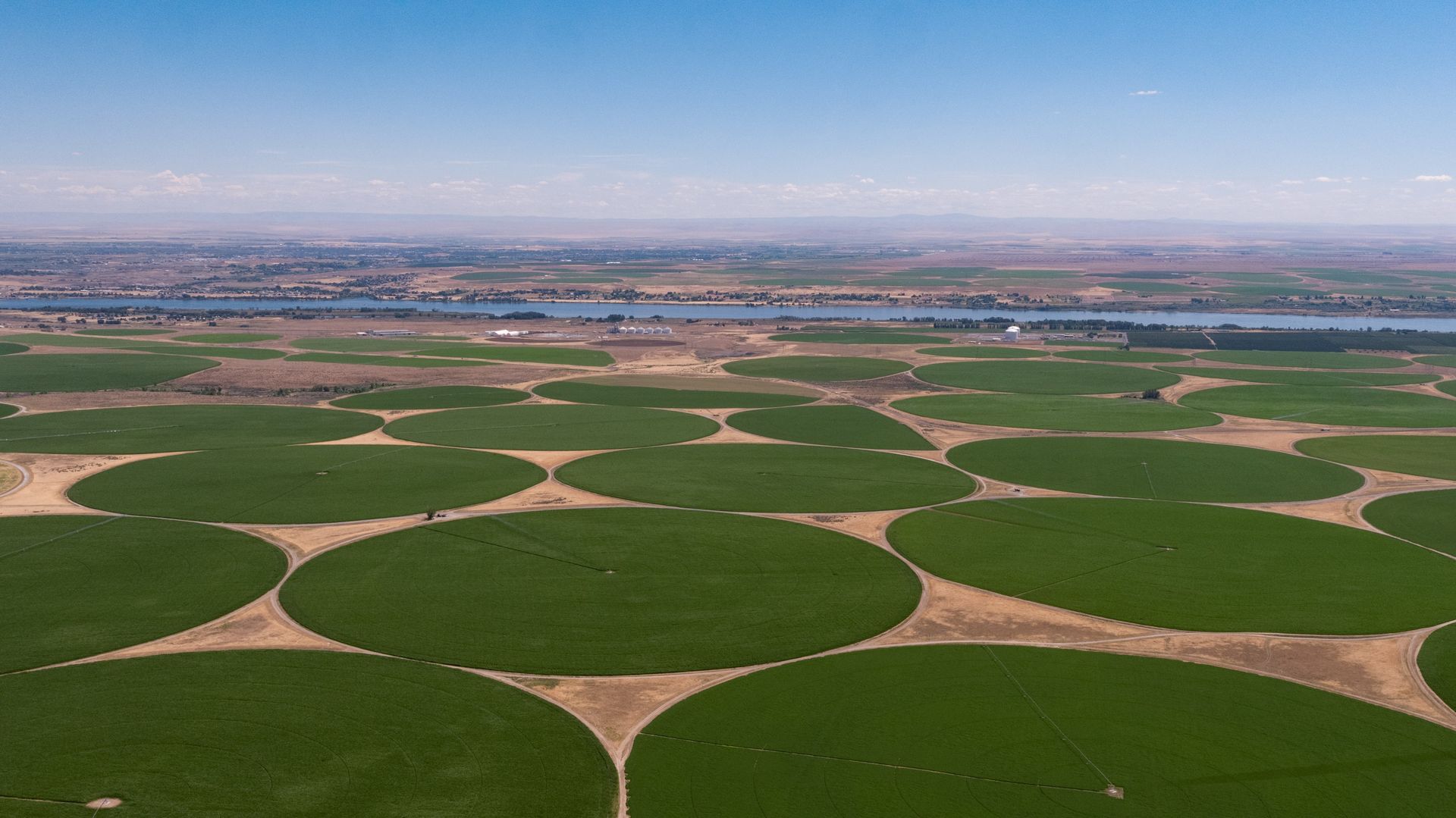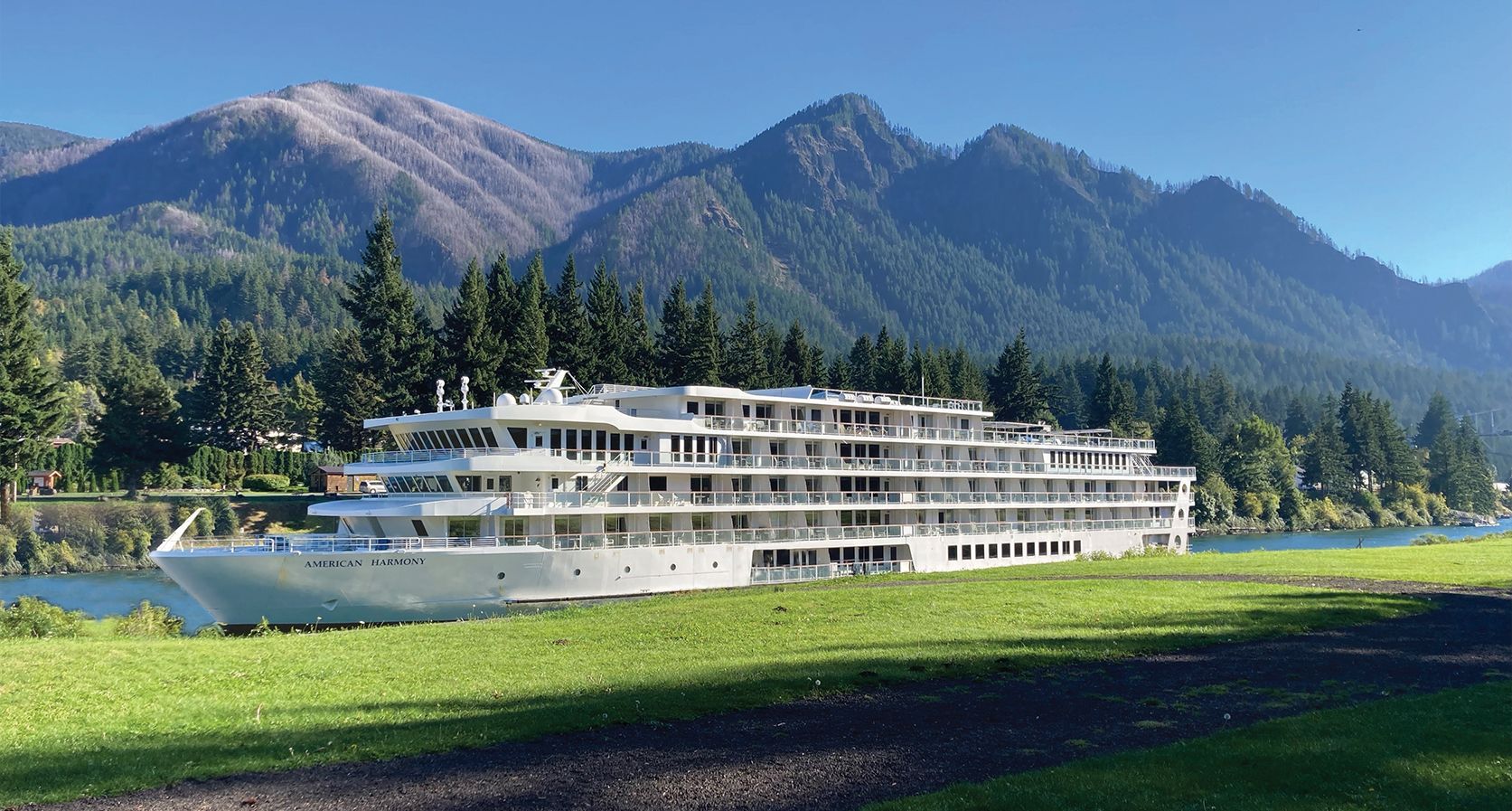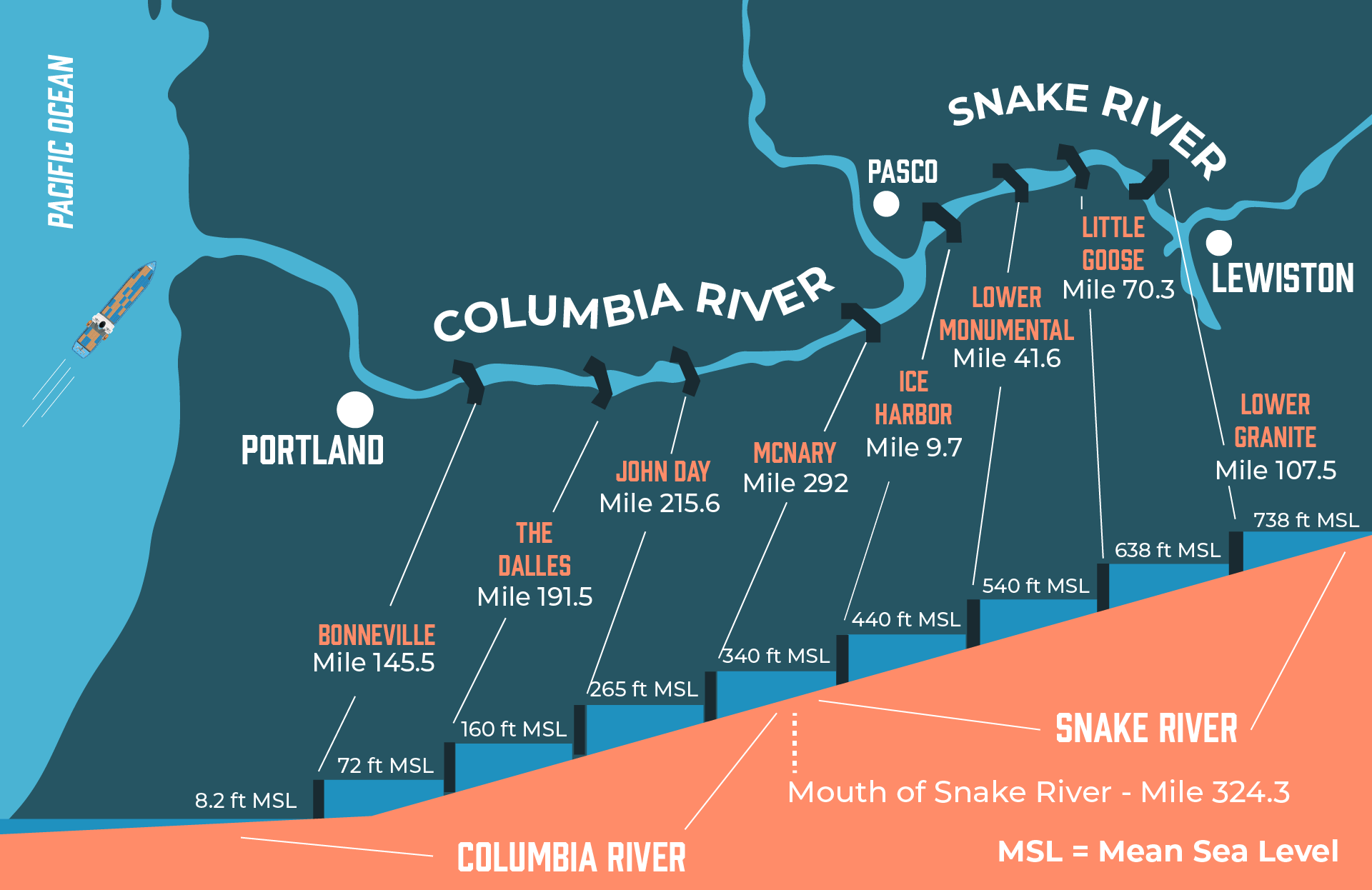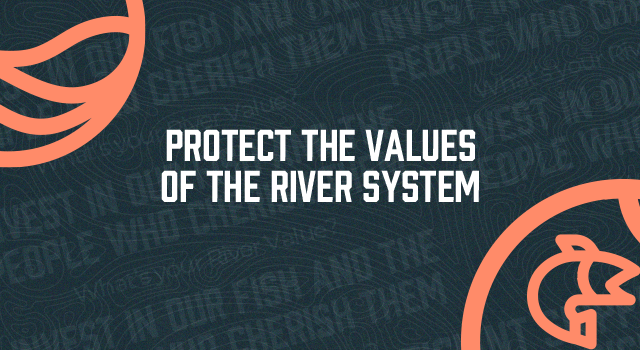Rob Rich is no stranger to the Columbia Snake River System. Having worked in transportation and commerce on the Columbia and Snake rivers for over four decades, he understands well the importance of the federal system of locks and dams that make navigation possible.
Rich currently serves as the Vice President of Marine Services for Shaver Transportation Company, an inland freight transportation company based in Portland, Oregon. With a fleet of 16 tugs and 22 barges, Shaver operates many of the tugboats and barges that transport goods on the Columbia Snake River System.
Rich got his start working with water machinery and transportation at Lake Coeur d’Alene in Northern Idaho, where he worked at a marina that was operated by a local tug company. Then in 1979 Rich headed to Portland to begin his career in the tug and barge industry.
At that time, the region was experiencing significant expansion in inland freight transportation. “So many types of cargo were starting to move on the system because of the expansion into Idaho thanks to the Snake River Dams,” said Rich.
“The emergence of this high-capacity, low-cost barge system brought about an atmosphere of excitement and spurred innovation.”
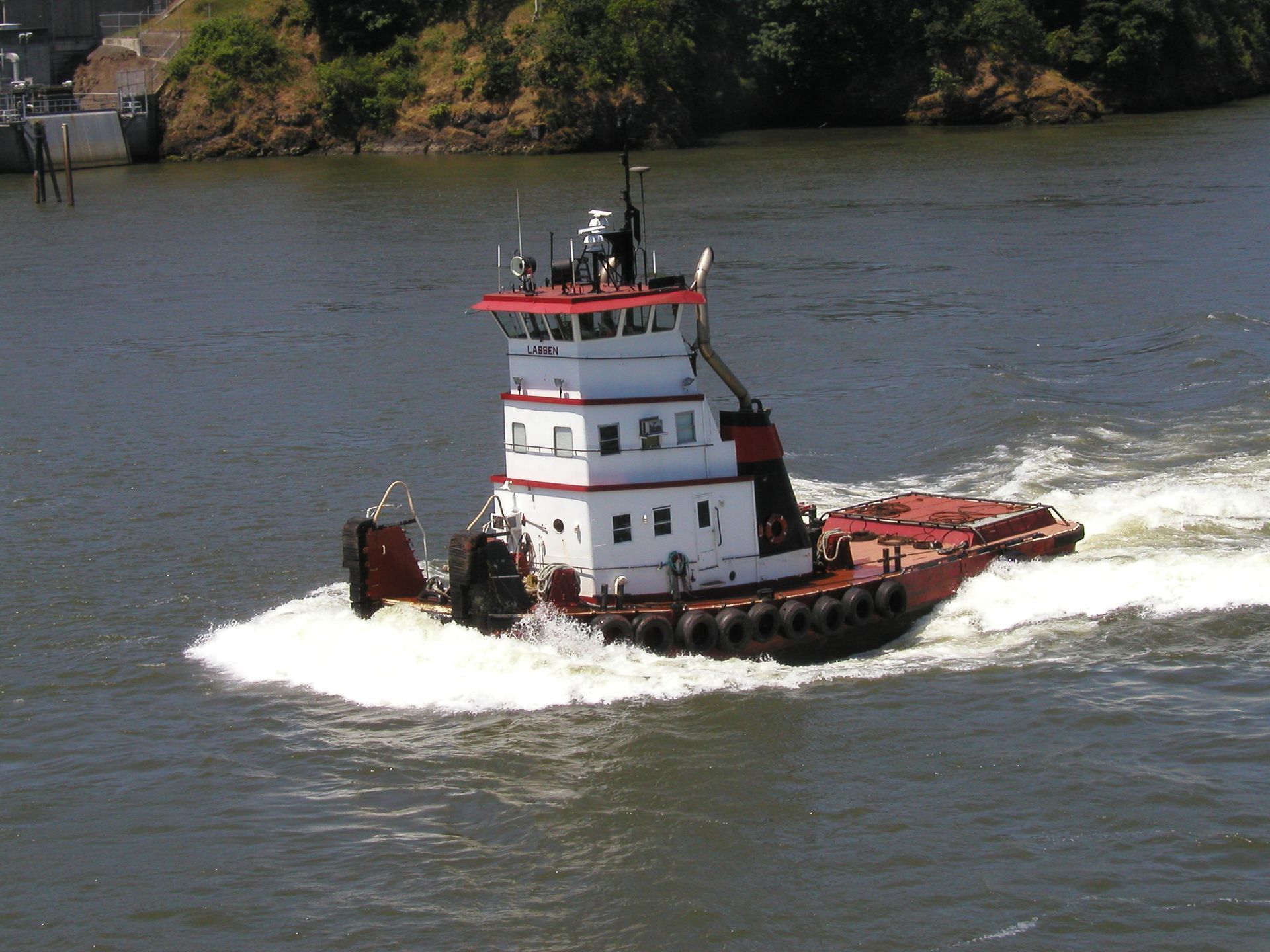
Various commodities such as wood chips, containers, bailed pulp—all things that were previously moved by short line rail—shifted to barges because of the efficiency and cost-effectiveness of river transportation. Some of the appeal for shippers included having a new transportation capability that increased options and reliability, particularly for industries with low margins, such as agricultural products.
"The emergence of this high-capacity, low-cost barge system brought about an atmosphere of excitement and spurred innovation," Rich explained. "It fostered healthy competition and allowed for innovation. Back then, the sky was the limit for what you could move on the Columbia Snake River System.”
Today the system remains a vital part of moving goods throughout the Pacific Northwest. Rich highlights the surety of the system, noting its reliability, regardless of weather. “All of the things that shut down ground transportation—high winds, heavy fog, snow, landslides, or fire—do not affect the inland barging system.”
The efficient, reliable movement of raw materials, food, fuel, and other vital goods wouldn’t be possible without the dependability of the Columbia Snake River System. “On the Mississippi River System, low water in the fall restricts shipping; that doesn’t happen in Columbia-Snake system,” he explains. “Additionally, all shippers know in advance when the locks will shut down for annual maintenance.” Because of this, barges can plan around those closures, helping ensure that the goods we ship or use every day continue to move efficiently and on schedule.
If there’s one thing that Rich wants to underscore about the river system, it’s the vital role that it plays—not just for transportation, but every facet of the Northwest.
“All of the things that shut down ground transportation—high winds, heavy fog, snow, landslides, or fire—do not affect the inland barging system.”
“I work for a tugboat company, but it’s not about us,” Rich said. “We have this enormous system with countless integrated benefits—all of which work to serve the millions of people of the Pacific Northwest. Any major change to this system could disenfranchise an outsized percentage of Northwest citizens.”
Share your river value
We all benefit from the federal system of dams and locks on the Columbia Snake River System. Whether you appreciate clean and reliable electricity, irrigation for farms, or affordable and fuel-efficient shipping, the Columbia Snake River System connects the Pacific Northwest to the world and keeps our region strong and balanced.
We’re looking for personal stories to share from our community about how the River System supports your life. If you’re a resident, worker or business owner who appreciates the public goods created and supported by the Columbia Snake River system, we want to share your story!
